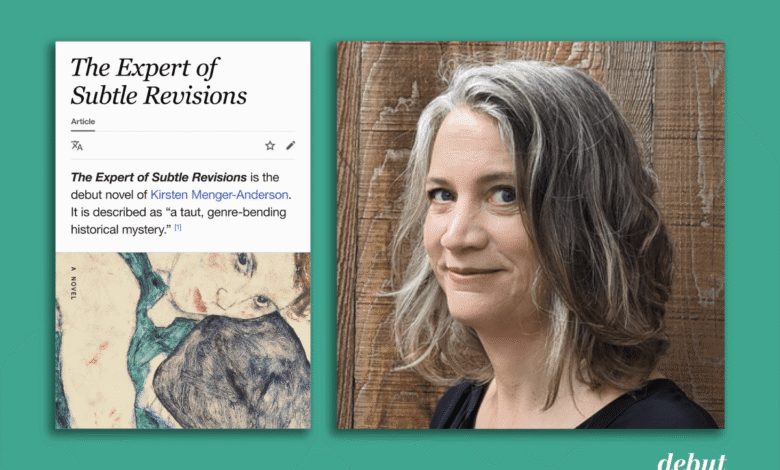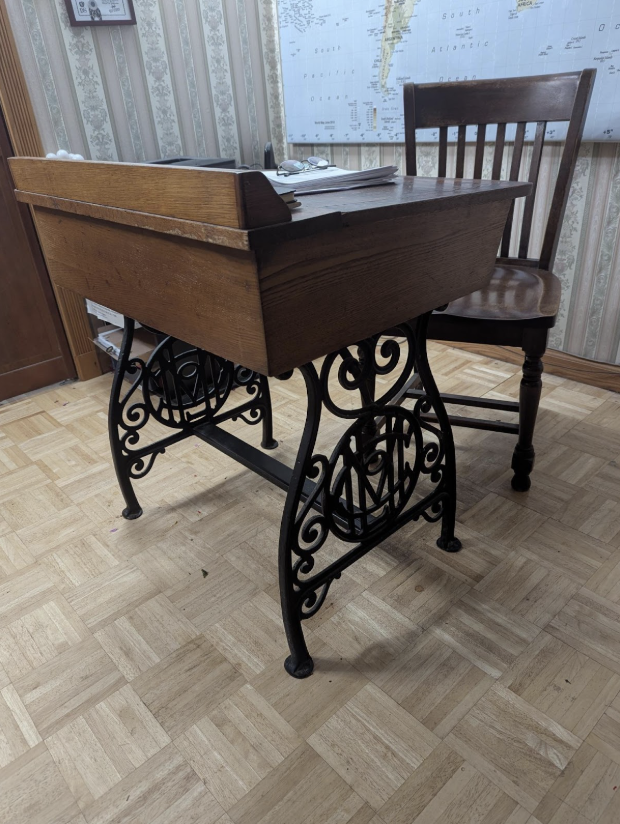Kirsten Menger-Anderson interviews Kirsten Menger-Anderson – debutiful

Every now and then, I like to ask writers, “Is there a question you’d like me to ask?” I’m always surprised by the types of questions they’d want to ask themselves, so I decided to take the idea of the self-interview and give writers some restraints.
One. Use Who/What/When/Where/Why questions.
Two. Have fun.
The first Debuti-Self Interview features Kirsten Menger-Anderson, author of the debut novel The Expert of Subtle Revisions, a mind- and time-bending family thriller. Menger-Anderson lives in San Francisco and is also the author of the short story collection Doctor Olaf van Schuler’s Brain. Her work has appeared in LitHub, Undark, Towards Data Science, Becoming Human: Artificial Intelligence Magazine, and Q.E.D.
But enough from me. Let’s turn it over to Kirsten Menger-Anderson.
WHO do you talk to in your head?
It’s true! I do talk in my head, and sometimes out loud when I’m writing. I also read lines as I’m working on them, or chapters as I’m revising. If another person walks into the room, I stop. The voice is private. It does not belong to someone else. And it’s not just a critic, telling me that the work is good, or that it is not, or that I should delete it altogether. It’s more like a mirror with a reflection that’s hard to make out, but I still gaze at it, trying to see what it looks like.
WHERE do you do most of your writing?
Right now, I’m writing at the kitchen table, but my favorite writing desk is one that once belonged to my grandfather. The top opens to reveal a storage compartment, and the metal legs are beautiful. It’s a bit stark, and somewhat small, but I love it. I wrote much of the early drafts of what became my novel The Expert of Subtle Revisions at it.

WHAT inspired you to write The Expert of Subtle Revisions?
My novel was inspired by my grandfather Karl Menger’s memoir, Reminiscences of the Vienna Circle and the Mathematical Colloquium. He was a professor of mathematics at the University of Vienna, and his book opens with a chapter called “1. The Historical Background,” where he reflects on the political climate between the wars in Vienna—the Socialist Democrats who’d earned the city the name “Red Vienna,” as well as the German Nationalists, the predecessors of the Nazi party. He describes how German Nationalist students physically assaulted Jewish and socialist students, and how the university closed, sometimes for weeks at a time, after violence. Then the chapter ends, and the next begins, which details the rich social and cultural life of the city. This pair of chapters—one dedicated to the great cultural and intellectual excitement of the time, and the other to political violence—haunted me, and ultimately inspired the novel.
WHEN is the best time to write?
I like to write every weekday. Mornings are my most productive times, and therefore the best times, though this has not always been the case (before I had kids, I wrote at night, often late, and though my kids are older now, my schedule never shifted back). The very best time to write is after a walk, which I try to take after breakfast, but before sitting down at my desk. I walk around the neighborhood, or to the grocery store or pharmacy to take care of an errand. I usually bring my phone so that I can email myself notes—a line that pops into my head or a solution to a problem that has been stumping me. The walks have become part of my writing routine, and a nice way to get out of the house and shift my thinking.
HOW did you find your agent?
I first connected with my agent, Heather Jackson, through a query letter. I approached her after I read and enjoyed The Paris Library by Janet Skeslien Charles, whom she represents. Like my novel, The Paris Library has a modern and a historical storyline, and I hoped that this structure would catch her eye. I didn’t have any other connections to her, and we still have never met in person, but the query letter was enough to start a relationship. Not a day goes by that I’m not grateful to work with her.
WHY? Why? Why?
Great question! It’s one I often ask myself, especially when I’m writing: why do the characters think what they do? Why do the characters end up together, or apart, or conversing about a certain topic? Why am I fascinated about an idea, and how can I shape a compelling story that readers will enjoy and find satisfying and read until the very end (you made it!)
Source link

